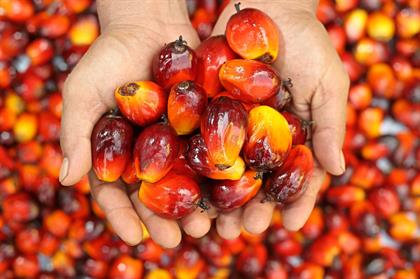
The Ubiquitous Presence of Palm Oil: Unveiling its Role in Everyday Products
February 08, 2024
Palm oil, derived from the fruit of the oil palm tree, has become a ubiquitous ingredient in numerous consumer products worldwide. While its versatility and cost-effectiveness have made it a popular choice for manufacturers, the production of palm oil has raised environmental and ethical concerns. In this article, we will explore the products that commonly contain palm oil and delve into how this versatile ingredient is used in various industries.
Food Industry
- Cooking Oils: Palm oil is a staple in many kitchens, serving as a primary cooking oil due to its high heat resistance and neutral flavor.
- Processed Foods: Snack foods, baked goods, and convenience foods often contain palm oil for its ability to enhance texture, extend shelf life, and maintain stability.
Cosmetics and Personal Care:
- Skincare Products: Palm oil and its derivatives, such as palm kernel oil, are commonly found in cosmetics and skincare items due to their moisturizing properties.
- Soaps and Detergents: Palm oil is a key ingredient in the production of soaps and detergents, contributing to lathering and cleansing properties.
Household Products:
- Candles: Some candles use palm oil as a base, providing a clean and slow-burning fuel source.
- Cleaning Products: Palm oil derivatives are present in various cleaning agents for their ability to dissolve and remove grease and stains.
Biofuels:
- Biodiesel: Palm oil is used in the production of biodiesel, serving as an alternative and renewable fuel source for transportation.
Animal Feed:
- Livestock Feed: Palm kernel cake, a byproduct of palm oil processing, is utilized in animal feed to provide supplementary nutrition for livestock.
Concerns Surrounding Palm Oil Production
While palm oil's versatility has led to its widespread use, the environmental and social consequences of its production have sparked significant concerns. The expansion of palm oil plantations has been linked to deforestation, biodiversity loss, and habitat destruction, particularly in regions like Southeast Asia and Africa. Additionally, the industry has faced criticism for human rights abuses, including labor exploitation and displacement of indigenous communities.
Sustainable Alternatives and Initiatives
Recognizing the environmental and ethical challenges associated with palm oil production, there has been a growing push for sustainable practices in the industry. The Roundtable on Sustainable Palm Oil (RSPO) is one such initiative, aiming to promote the adoption of environmentally and socially responsible practices in palm oil production. Many companies have committed to sourcing certified sustainable palm oil (CSPO) or are actively seeking alternative ingredients to reduce their impact on the environment.
Brand That Used Palm Oil
Many well-known brands across various industries use palm oil or its derivatives in their products. It's important to note that the use of palm oil itself is not inherently negative; the concerns arise from unsustainable and environmentally damaging practices associated with its production. However, some companies are actively working towards using sustainable palm oil or finding alternative ingredients. Here are examples of brands associated with palm oil usage:
Food Industry
- Nestlé
- Unilever
- Kellogg's
- General Mills
- Procter & Gamble (P&G)
Cosmetics and Personal Care
- L'Oréal
- Johnson & Johnson
- Colgate-Palmolive
- Esteé Lauder
- Avon
Cleaning and Household Products
- SC Johnson (makers of Windex, Pledge, etc.)
- Clorox
- Reckitt Benckiser (RB)
Fast Food and Snack Brands
- McDonald's
- KFC
- Pizza Hut
- Nestlé (also present in the snack industry)
Biofuels
- Many companies in the energy and biofuel sectors use palm oil in biodiesel production.
Consumers must be aware of these associations and support companies that are committed to sustainable and responsible palm oil sourcing. Some brands have made public commitments to using certified sustainable palm oil (CSPO) or have pledged to eliminate deforestation and human rights abuses from their supply chains. Checking a brand's sustainability policies and certifications can help consumers make more informed choices and support companies actively working towards positive change in the palm oil industry.
Conclusion
Palm oil's prevalence in various consumer products underscores the importance of addressing its environmental and social impacts. As consumers, being informed about the products we use and supporting sustainable initiatives can contribute to a more responsible and ethical supply chain. By advocating for and choosing products that prioritize sustainable sourcing, we can play a role in promoting a more environmentally friendly and socially conscious industry.
Leave a Reply
Related Products
You Might Like Also

Palm oil forecasting involves predicting future trends in the price and production of palm oil. As one of the most widely used vegetable oils in the world, found in products ranging from food to cosmetics and biofuels, understanding its market dynamics is crucial for stakeholders. Read More

Planning a private event in Singapore and looking for the perfect venue? Whether it's a corporate gathering, a birthday celebration, or an intimate wedding, the right location sets the tone for an unforgettable experience. Read More

Exploring the Culinary Delights of Westgate: A Taste of Singapore's Vibrant Food Scene
One of the defining characteristics of the Westgate food scene is its fusion of flavors, reflecting Singapore's multicultural heritage. Read More

Technological Innovations Revolutionizing Palm Oil Production
Palm oil, the most widely consumed vegetable oil globally, plays a pivotal role in numerous industries, from food and cosmetics to biofuels. Read More

Culinary Journey Through Singapore's French Restaurants
While French restaurants in Singapore stay true to the traditions of French cuisine, many also embrace the city-state’s multicultural ethos by infusing local ingredients and flavors into their menus. Read More

Exploring Diverse Careers in the Music Industry Jobs
Behind every hit song and successful album, there exists a vast network of professionals contributing their unique skills and talents. From creative roles to business-oriented positions, the music industry offers a wide array of exciting career opportunities. Read More











